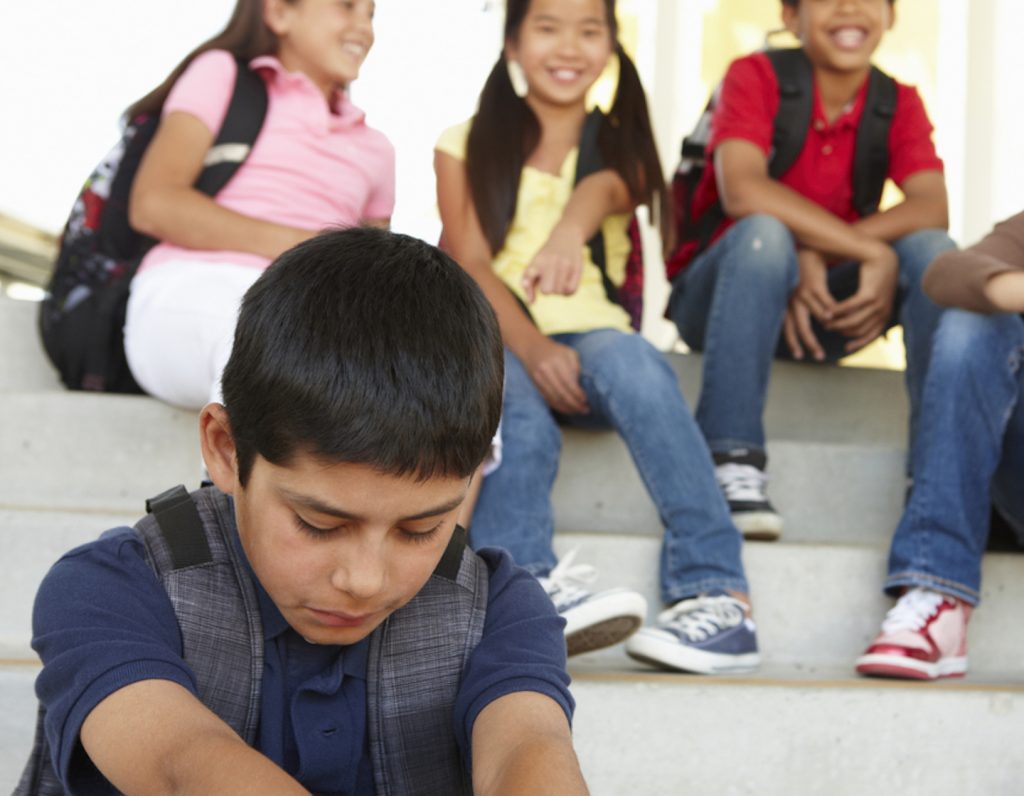
 Post Category - ParentingParenting - Post Category - Toddler & PreschoolerToddler & Preschooler - Post Category - Older KidsOlder Kids
Post Category - ParentingParenting - Post Category - Toddler & PreschoolerToddler & Preschooler - Post Category - Older KidsOlder KidsIf you’re worried about bullying (and what parent isn’t?!), child psychologist Anoushka Beh explains what can cause it, along with strategies and solutions to help parents and kids avoid it
We’ve all been there, mamas: seeing our little one pushed on the playground, or comforting a child who comes home in tears because the kids at school made fun of his shoes (or hair, or incorrect backpack, or weird lunch). Or maybe you’ve been mortified to see your child push someone else on the playground, and you’re unsure how to properly address it so it never happens again. In this two-part series, child psychologist and family therapist Anoushka Beh will take us through the root causes of bullying, as well as solutions and strategies to help both you and your child avoid it.
Click here for Part 2: A Parents’ Guide to Managing Bullying Behaviors
As parents, finding out our child is getting bullied can be not only be heartbreaking, but often leaves us at a loss about how best to respond. For one thing, it can make us feel powerless because it’s not happening on our home turf and is therefore difficult to monitor, supervise and respond to in the moment. Not being there to witness events can incite anxiety in many parents, and often lead to an over-focus on bullying behaviours, blame around who did what and who hit whom first, and the not so useful labels of “bully” and “victim”. This is even more disconcerting for the parent who learns his or her child is the aforementioned “bully” in question, or one who may be initiating the conflict at school.
What’s important to note here is that in focusing on blame, shame and the bullying ‘behaviour’ – or the drama in the moment – we often miss the bigger context which, I believe, holds a more complex truth and the keys to understanding why kids bully, get bullied and sometimes even the victims themselves of these incidents go on to victimise others in the future.
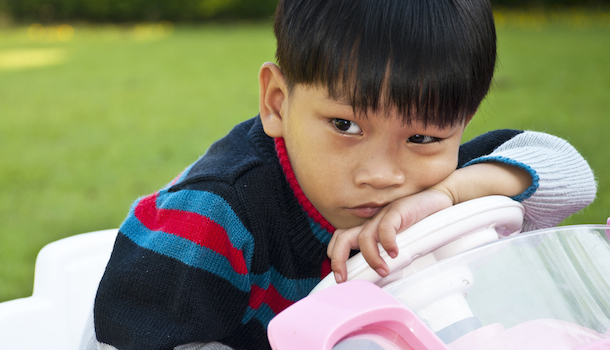
The Heart of The Matter
Looking at statistics, we now know that 1 in every 7 children in the US between the ages of 5 and 18 either bullies or gets bullied at school (www.bullyingstatistics.org, 2010). In addition to this, 160,000 students miss school each day because of their fear of being bullied. In Singapore, these figures may be even higher, with 97.4 % of children aged 7-16 years in a recent study reporting that they had experienced bullying at least once (www.cabcy.org.sg). Significantly, those who are victims of being bullied also carry the impact of this experience into adulthood, and these include negative consequences for mental well-being, physical health, job prospects and relationships (www.bbc.com/news/education-23756749).
What’s clear is that bullying is not only a common occurrence for many kids, but also that it has both negative short-term and long-ranging effects. While traditional approaches to manage bullying in school involve anger management programmes, psycho-educational workshops, cognitive-behavioural therapy and/or punitive measures, we should also look at the larger context – in particular what’s happening on a psychological and emotional level for children who bully and are bullied – for the real solutions to how we can stem this issue.
Current research strongly points to empathy (or the lack thereof) as a core feature of kids who bully others. Empathy, the ability to make sense of your own feelings and feel into other’s experiences, seems to buffer children from becoming bullies and is something that we begin to learn from our parents and social contexts as early as 18 months. It’s not surprising that family environments where feelings are not discussed openly are more likely to produce bullies. In fact, the absence of empathy has been identified as a common denominator in not only family violence and bullying at school, but also on a more global scale, in incidents like the Holocaust, genocide and the marginalization of those who are different in some way.
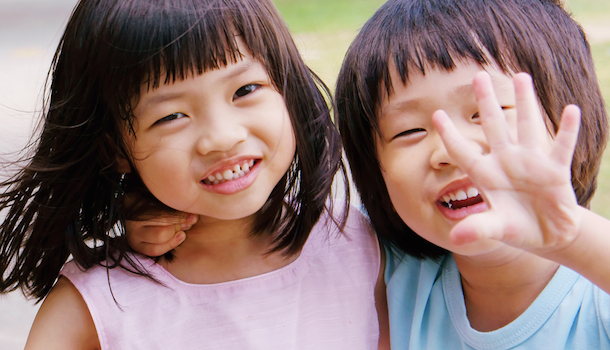
How can we understand this, and what bearing does it then have for how we should be raising our children today? On a basic level, not being able to see and value what another person might be feeling acts like a wall, blocking a child off from another’s experience. When a child can’t feel or understand another’s pain, they are much more likely to inflict harm and bully, because on a brain level, they don’t have the resources to comprehend how their behaviour is impacting the child who is being bullied.
They simply can’t feel what the other child is feeling in that moment, and this disconnect gives them the freedom to act in ways that harm others. Interestingly, the child being bullied can also become cut off from their own empathy during this experience and as such, be more likely to respond in an aggressive way to their attacker or go on to bully others in the future.
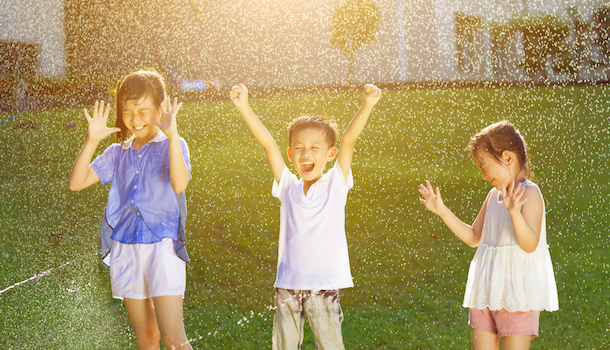
Cultivating empathy, on the other hand, allows children to tap into each other’s experiences and connect with a shared sense of humanity. The “Making Caring Common project” at Harvard strongly advocates the benefits of helping kids to cultivate more empathy from a young age. Longitudinal studies have shown that empathy significantly lowers aggression in children and decreases bullying behaviour across time. (www.academia.edu/282951/StavrinidesandTheofanous_2010).
A child who is bullied, but has a high level of empathy, will also have a better chance of making sense of their own experiences and emotions and be less likely to suffer any of the longer term issues or bully others in the future. Higher levels of empathy are also correlated with good self-esteem and socialising skills, both of which decrease a child’s likelihood of becoming a victim of bullying.
While there are a number of other factors that also contribute to the likelihood that a child will bully or be bullied (which I will cover in Part 2 tomorrow), and also ways in which we can address this issue as parents and school-teachers, I think it’s important that we understand the vital role of empathy in the bullying phenomenon. It is equally important to keep our eye on empathic-skill development as both a preventative and curative measure to combat bullying in school.
Here are a few ways in which we can help our children develop empathy and their ability to respond to others in constructive ways:
- Help your kids put words to their emotions
Feelings are complex, and naming them can be trickier than we sometimes realise. Without a name though, a feeling can often be more abstract and difficult to make sense of. Helping our kids find the right words that express what they’re feeling is a great way for them to come to understand the feelings of others.
- Express and be present with your emotions
By talking about how you are feeling and making sense of your own (appropriate) emotional experiences with your child, you help to model the emotional awareness you want them to develop. Share your thoughts and feelings about situations in the family, what friends are going through, events in the newspaper or on TV. Encourage your child to also consider the feelings of other children that may bully or get bullied and share these out loud.
- Use empathy as part of discipline
Get your children to think about how their siblings might have felt during an argument and/or after it. Make sense of the emotional experiences of both sides – the victim and the perpetrator – while encouraging your child to think about the multiple perspectives that inevitably exist in a conflict.
- The power of reward
Rewarding our children, particularly through positive affirmations and recognition, is a powerful way to influence the likelihood they will behave in the same way again in the future. Pay attention to when your kids are responding out of empathy, reaching out to help and changing their behaviour out of concern for others, and let them know you value and support what they’re doing.
- Slow and steady wins the race
None of us is perfectly empathetic all the time, even as adults. To ask a child to put others first, or even have the emotional energy to always notice what someone else is feeling when they are upset is asking a lot. Skill development can be a slow process that happens over time, so it’s important to just keep providing guidance and positive reinforcement with the knowledge that your child will eventually get there in time.
Using these strategies at home with your kids is a good start to helping them develop an empathic skill set that lowers their risk of bullying and being bullied. In this sense nurturing empathy in our kids is a particularly strong preventative measure when it comes to bullying. It also sets a good foundation for them to develop better communication with their peers, social skills and also the resilience to respond to conflict more effectively.
Moving beyond the role of empathy, my next article in this two-part series explores other practical solutions to the bullying phenomena and provides parents with a guide and other tools they can use as a road-map to support their kids. For more tips on what you can do at home and also how to work with teachers to protect your child from bullying, look out for my follow-up article in this series tomorrow.






 View All
View All
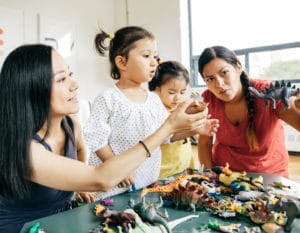




 View All
View All









 View All
View All







